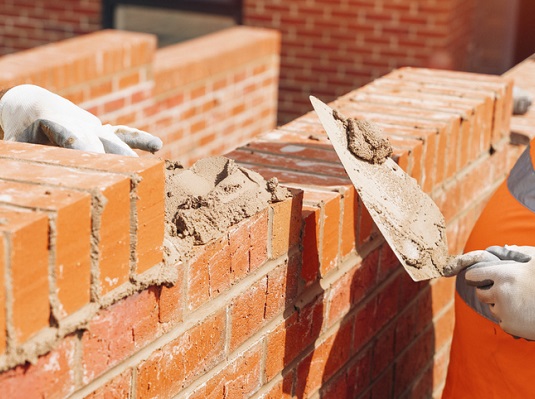How Much Do Bricklayers Earn?
Reading time: 4 minutes
Average bricklayer salary in the UK
As a rough guide compiled from research by Checkatrade, this is the average bricklayer salary that people across the UK can expect when pursuing this area of trade as a living:
-
An apprentice bricklayer should expect an annual salary of £11,063
-
A newly qualified bricklayer should expect an annual salary of £31,942
-
An employed bricklayer should expect an annual salary of £40,102
-
A sole trader bricklayer should expect an annual salary of £56,052
-
A business owner of a Ltd bricklaying company should expect an annual salary of £59,002
However, it is important to note that there are several factors which will affect how much a bricklayer can earn.
Increased demand means that bricklayers will have the opportunity to make more money when working in London and the South East of the UK compared to the same tradespeople earning a living in other areas. The cost of living is also higher in these parts of the country though, so the take-home pay begins to balance out.
Bricklayers can also increase their chances of boosting their potential earnings by making their services more bespoke. Examples of specialisms in this area of trade include becoming qualified to work on custom masonry, being skilled in eco-friendly bricklaying practices and knowing how to restore masonry.
Understanding a self-employed bricklayer salary in the UK
As you can see from the average salaries of sole trader bricklayers and those who own their own Ltd bricklaying company as listed earlier, there is plenty of appeal for becoming a self-employed bricklayer when it comes to how much more money you can make.
However, just make sure to note that self-employed bricklayers are responsible for their own National Insurance and tax contributions. The following costs and business expenses will also need to be factored in, all of which will impact overall profitability:
Purchasing your own materials, tools and equipment, which for a self-employed bricklayer should include these at the very least:
-
Buying your own works vehicle, as well as factoring in its weekly fuel costs
-
Taking out liability insurance and health and safety insurance, so that your business and its assets are protected
-
Pursuing professional development opportunities and obtaining certifications to stand out from your competition
-
Investing in marketing methods such as website subscriptions, local radio adverts and paid online advertising to attract customers
-
Covering the cost of overheads, which can include the use of office space, utilities and administrative expenses should your bricklaying business be situated within a physical premises
Bearing all of the above in mind, Checkatrade has listed the approximate take-home pay of a sole trader bricklayer as being £37,589 once business costs are deducted. For a business owner of a Ltd bricklaying company, the approximate take-home pay is £38,830.
Do bricklayers get paid per brick?
With various suggestions that a competent bricklayer can lay an estimated 500 bricks each day when the working conditions are good and the tradesperson is on a fully accessible site, it can be appealing to be paid per brick.
Rates will again vary by location, but Checkatrade has recommended that bricklayers charge the following depending on the type of job they are undertaking:
-
Charge between £650 and £1,500 per 1,000 common bricks
-
Charge between £650 and £1,790 per 1,000 Class A or Class B engineering bricks
-
Charge between £2,260 and £5,000 per 1,000 clay facing bricks
We hope you have a better understanding about the average bricklayer salary in the UK from reading this guide. Be sure to browse through our Trade News & Advice hub to keep on expanding your industry knowledge as you pursue a career in bricklaying or any other type of trade.




